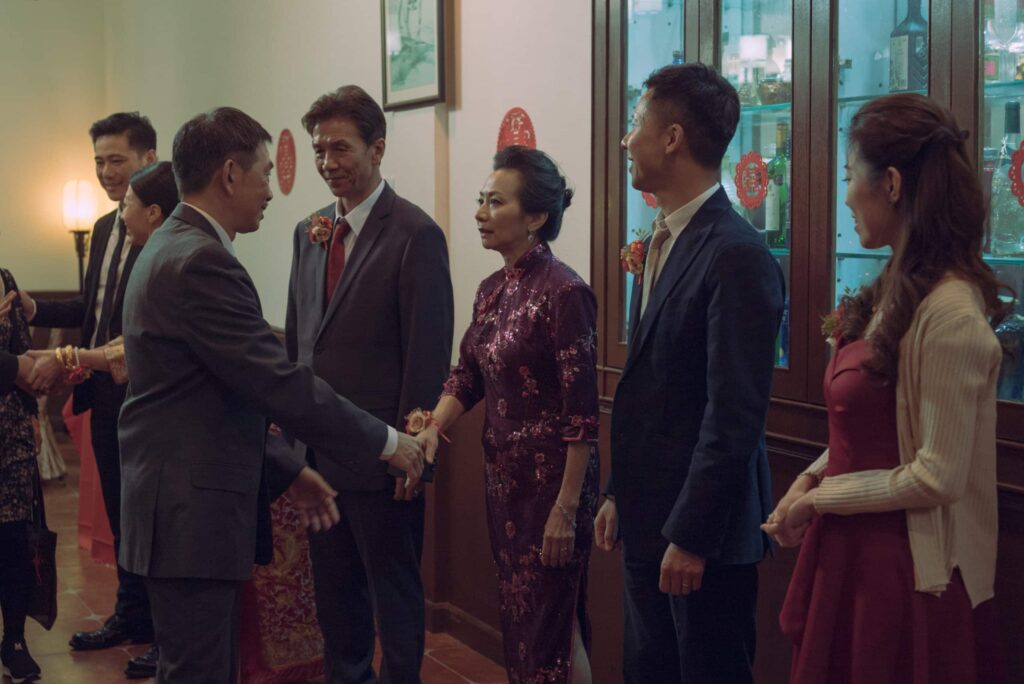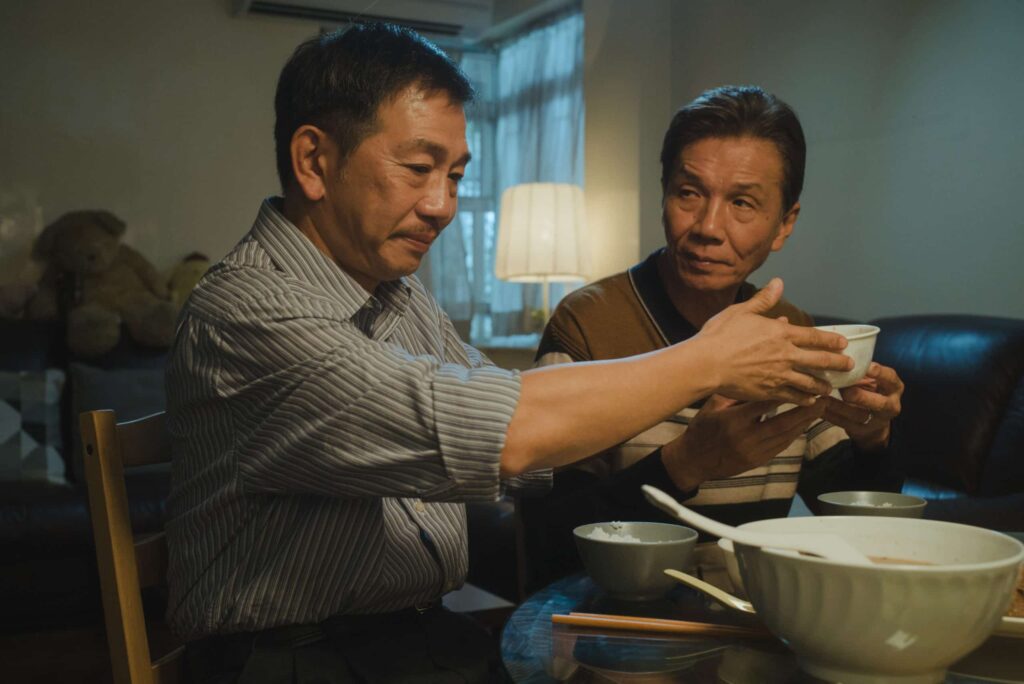Twilight’s kiss
By George Lee •
George lee speaks to Ray Yeung, the award winning director of Suk Suk (Twlight’s Kiss) about his inspirations and the real life stories that influenced this beautiful film about the relationship between two patriarchs of heterosexual households.

Q. What was your inspiration behind the film?
A. Suk Suk is inspired by a book called “The Oral History of Gay Men in Hong Kong’ by Travis Kong, which is a collection of 12 interviews of elderly gay men, mostly in the closet. After I read the book I felt the stories are fascinating and has never been shown on screen before. So I started contacting the interviewees. After speaking to them I decided to make a movie about them.
Q. What story do you hope it is telling?
A. There was one interview in the book, which particularly touched me; in this chapter Travis asked the interviewee whether he had any regrets. The man, in his 70s, told Travis he had no regrets, having swum to HK as an illegal immigrant many years ago with nothing. But now, decades later he has a wife who would make soup for him when he gets home, and his children would give him a monthly allowance. He really believes his life is a success story despite sacrificing his true self. After reading that, I realized it was very different from how the Western world sees a fulfilled LGBTQ life.
Nowadays, LGBTQ people are encouraged to come out and be true to themselves. If they don’t, they are seen as cowardly, dishonest and sad. However this man didn’t seem to have those feelings. For him, he is a success story and there is nothing to be ashamed of. When I read his comment, I suddenly asked myself, who am I to judge this man? If that’s how he feels, he should not be compelled to be ashamed of himself. To judge him would be treating him unfairly. So therefore, I set out to write a screenplay about these elderly gay men; to portray their stories without judgments, and just show their dilemmas and struggles. It would be up to the audience to interpret their choices and decisions.
Furthermore, I want to show that there are gay men everywhere; they do not fit into a particular stereotype. Both Pak and Hoi in the film can be any of our relatives or people we meet in the street.
Q. How would you like people to respond to it?
A. In the movie, I want to portray the reasons why some of these older gay men are in the closet and for them to come out would mean giving up something which they have spent their whole life building.
The younger generation of gay men are luckier because society today is more accepting. There is also a bigger network for the LGBTQ community. Older gay men in Hong Kong had a much harder time because they were living in an era when homosexuality was illegal and almost everyone had to get married. An unmarried man of a certain age was seen as an outcast and this would affect their status at work, within the family and society at large.
Therefore it is not an easy choice for them. In contemporary society’s more liberal view, many think they should come out, but this film shows their struggles and reasons why they can’t. The film asks for more empathy for this group of elderly closeted men, particularly from the younger generation who might label them as sad or repressed.
The world also needs to hear and see their stories. Witnessing their struggles and conflicts help people to understand them more. Maybe to realize that they are not so different from themselves and that the need for love, respect and the freedom to be who we want to be is universal — Ray Yeung
Q. How have people reacted to date?
A. I have attended many post-screening discussions and a lot of the audience said they liked the subtlety of the film and felt that it opened up their eyes to many topics, which they have never considered before. Some said that they haven’t really thought about their parents or grandparents as people who might still have personal desires.
In terms of the LGBTQ audience I think some will reconsider how the gay scene is actually quite ageist. Most gay establishments are youth orientated.
I hope the film will prompt the younger generation to appreciate what they have now and also have more empathy for these older gay men. The gay scene and our society certainly do not pay enough attention to the senior population.
Q. What is your view on the current state of age-related imagery and communication?
A. I think we live in a world which is quite ageist. Once someone passes retirement age, society does not pay much attention to him or her anymore. Most entertainment establishments and leisure activities are youth orientated. There are hardly any movies devoted to stories about seniors. We feel that the only thing elderly people are concern about are health issues, but in reality they also need emotional support.
Q. How do you think we should change how we view and represent age?
A. I think there should be more representation of the older generation in the media. When I was looking for funding and investments for Suk Suk, many people turned me down because the two protagonists are over 60. They feel that a movie about LGBTQ is already catering for a niche audience, and adding senior issues to the story would make it even harder to sell since it is about a minority within a minority.
We also need to view seniors as three-dimensional people with their own desires and emotional needs. All too often, there is a stigma attached to the way they are represented. They are usually shown as either grandparents who dish out wise advice or the lonely neighbors who need help. There are a lot more stories that can be told about them. It could be about the trials and tribulations they face everyday and it does not necessarily always have to be about health issues or death.
Q. How did making this film change you?
A. As part of my research I interviewed many older gay men in Hong Kong. The one thing I noticed was that the interviewees all carried a sense of shame and self-hatred inside them. I think this was part of the reason why they found it hard to come out; because they did not accept themselves, they didn’t believe anyone else would. I remember there was one interviewee who was almost 80. He was quite active in the gay scene and would go to Gay Pride parades and speak out at public events about gay rights. However, when he spoke about his mother, his whole persona changed. He said he came out to his mother when he was around 40 years old. His mother was upset and later developed cancer and died. He put the blame on himself, saying that if he hadn’t come out to his mother, perhaps she wouldn’t have died. He said occasionally he would kneel in front of her grave and apologize, saying it wasn’t his fault that he is gay. He wished he wasn’t but he had no choice. I could see there was this deep-seated guilt inside him.
Therefore I realized that it is very important that their stories must be told. There is a sense of empowerment when you realize you are not the only person on this earth to have this feeling. When they see their stories projected on screen, or written in black and white in a book, they realize their secret is out and the consequences are not as bad as they imagined. In fact they may get sympathy and empathy. I think for many of them this is the beginning of a self-healing process.
The world also needs to hear and see their stories. Witnessing their struggles and conflicts help people to understand them more. Maybe to realize that they are not so different from themselves and that the need for love, respect and the freedom to be who we want to be is universal.

More Information
Ray YEUNG is an MFA graduate of Columbia University with a major in Film Directing; he is also the chairman of the Hong Kong Lesbian and Gay Film Festival since 2000. Ray’s first feature, CUT SLEEVE BOYS, premiered at Rotterdam (RIFF) in 2005. His second film, FRONT COVER premiered at Seattle’s SIFF in 2015 and was theatrical release in the USA, Thailand and Hong Kong.
Ray’s third feature SUK SUK (TWILIGHT’S KISS) premiered at Busan International Film Festival 2019, and was in Competition for the Teddy Award at the Berlinale International Film Festival 2020.
Instagram@ray.yeung.filmmaker
We want to hear from you
This story has been categorised as:
News